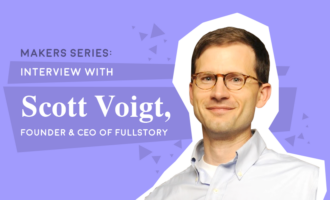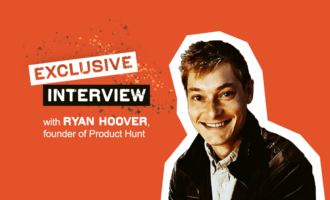Think like an editor or bust.
Thinking like an editor means you question everything.
When you question everything, you take a hard look at processes within your organization, finding inconsistencies and solving problems accordingly.
By questioning everything, you get better at being a company, which is beneficial for teams, culture, and the bottom line.
We sat down with editor-in-chief of Popular Science Magazine, Joe Brown, to learn what it means to think like an editor. We also dove into his secrets for leading successful teams, what businesses can do to write better content, and more.
What’s it like being the editor-in-chief of PopSci?
I get out of the way of the really smart people who work here.
We’re a small team of about 20 people and are pretty specialized across science and technology, so as editor-in-chief, I guide our team from a 30,000-foot view and make sure that they have the freedom to do what they need to do. It’s strategic moving out of the way.
What makes a good article?
Well, there are different kinds of stories. A long-form story needs some sense of conflict – it doesn’t have to be a war, but does need some conflict. Even an internal conflict from a central character can work.
Another thing that really makes a good article is a unique subject. There’s a difference between a topic and a story, and that’s something that we really hammer in very hard here. For example, an “airplane” is a topic, whereas a story is “why airplane interiors are getting smaller while planes themselves are getting bigger.”
You need to have the unique aspect of something that will capture people’s attention. When you can find the angle that allows you to tell something new and novel — you’ve hit on some gold.
Tell me about a challenge you’ve faced at PopSci and how you overcame it.
When I got to PopSci, the main challenge was figuring out what we wanted it to be this era.
The main high-level aspect is that “magazine” doesn’t mean the same thing in 2018 as it once did. Magazine now means podcast. It means website. It means Instagram. It means Snapchat. “Magazine” is a French word that means “collection.” We’re a collection not only of stories and themes but of platforms that serve a certain kind of reader.
The first thing was making sure that we were modernized, which was really important — we’ve come a long way since then. The second thing was to represent that sense of “wonder” that has always been a Popular Science hallmark.
We’re not trying to do the same thing we did when we were founded, but we still want to make sure we’re true to the original brand values: being in awe of the amazing innovation of our world — both in science and tech.
What’s something about your job that most people don’t know?
I think one interesting thing about my job is that you don’t get to make as many decisions as you wish. I have a properly deputized staff of empowered lieutenants. They make a lot of the more “fun” decisions on a day-to-day basis, and only the really tricky ones get to the top.
I wish I could make some of the decisions that people below me make, but that would be micromanaging. The theme for me is to hire the best people and get out of the way.
How can companies learn to think like an editor?
Thinking and writing are two very different muscles in the editor body. Thinking is really important because when you’re thinking like a journalist it always starts with one question — “Is this true?” That’s the fundamental question.
Any fact that you hear in a bar, anything you read online, anything your mom tells you. Many people don’t think to question whether the information that they take in on a daily basis is true – journalists do.
Writing like an editor is reading. The more you read, the more you’ll start to realize what you want to write like and what you don’t want to write like.
Effectively exercising both of those muscles will help you think and work like an editor.
What can businesses do to write better content?
Make sure that the people who are writing are reading and that you’re being as truthful as you can. Authenticity is something that is so incredibly easy to sniff out, especially from this new savvy generation of younger readers.
It’s pretty hard to get anything that’s not really authentic by them. Sometimes not being perfect is the best way to go. I know it’s hard for a lot of brands to understand but if you stick to the important message and don’t sweat the small stuff, your message will get through.
How can busy people be their most productive selves?
I think just having an organizational schema that works for you and not trying to impose it on anybody else. You have to be honest with yourself about what works for you. I have a to-do list that allows me to stay organized. It’s very paired down because if it was a more complicated system, I wouldn’t abide by it.
When it’s all over, how do you want to be remembered?
I’m a simple guy. I just want a moderate size statue in a moderately sized city. In one of the biggest transit hubs that’s made out of gold and has a helicopter landing pad on the head.
Honestly, I don’t care if I’m remembered — that’s not what I’m in this for.
I guess I would like to be thought well of by the people I work with right now. That’s more important to me.















Send Comment: